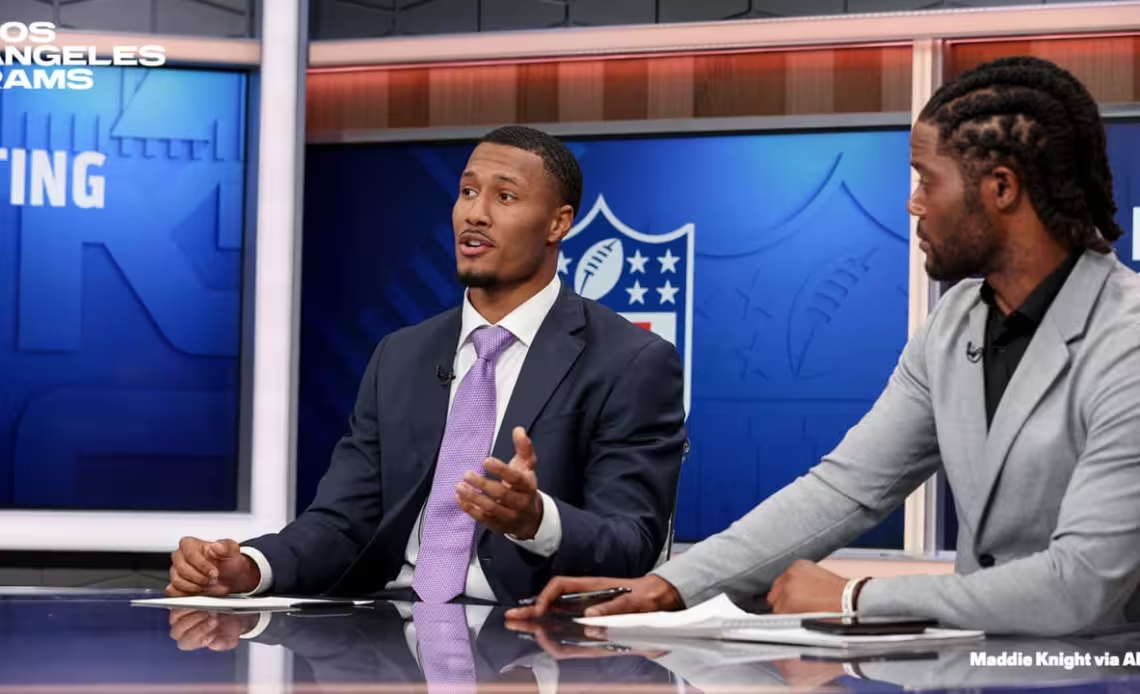The field of broadcasting drew Lake in because it provides a platform for to share one’s knowledge of the game, which he said was important. He’s seen first-hand how those with that background have managed to seamlessly transition into a broadcast career compared to those who don’t, noting the success of former Steelers safety Ryan Clark (ESPN analyst and host of “The Pivot” podcast), former Cowboys quarterback Troy Aikman (Monday Night Football game analyst for ESPN) and former Bengals wide receiver Cris Collinsworth (Sunday Night Football game analyst for NBC).
“You see a lot of football players transition into that space because they have a great knowledge of the game, better than a lot of people that didn’t play. Or even the people that studied the game a lot, they haven’t experienced it from a first-hand perspective. And that’s one of the things I can do, is I can teach. You can teach through commentating, through analyzing and through just speaking on the game, whether you’re on TV or whether you’re on the radio, and you kind of looked up to guys that do it.”
Paired with Matt “Money” Smith (studio host of “NFL Now”), Lake said the three-day event consisted of an introduction to broadcasting on Day 1 – what it is, do’s and don’ts, etc. – followed by a podcasting workshop on Day 2 with NFL Media analysts Daniel Jeremiah and Bucky Brooks and some X’s and O’s analysis.
Day 3 was all-encompassing: Two attempts at radio, two attempts as an on-camera game analyst calling a live game, then two attempts as a studio analyst.
“It was good just to kind of see yourself on camera, get that feedback from the professionals that are there, because after every session you get feedback instantly,” Lake said. “And also just have a little bit of fun, you know – be on camera, have the makeup done, all that stuff.”
That experience was valuable for Lake in ways beyond those, too. While participants said radio was the hardest between those activities, for Lake it was the on-camera game analysis.
“People said radio, but for me it was on-camera,” Lake said. “I struggled on-camera because I don’t know why I was the most nervous. They’re talking about your tie length, because it’s not only how you’re commentating, but how you look, too. Radio is difficult just because you have to explain it to a listener and they can’t see it. So there’s certain things like, landmarks were huge. Where did they catch the…
Click Here to Read the Full Original Article at News…

